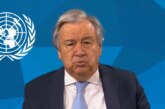
The Indian economy has been surging at an 8.9% pace for the past three quarters, but top economists whom CNBC-TV18 interviewed believe that the economy will slow in 2011. High inflation, fiscal deficit and current account deficits will constrain the economy. CNBC-TV18’s Vidhi Godiawala reports with views from the best and the brightest.
Finance minister Pranab Mukherjee has repeatedly asserted that India’s 8.9% GDP record in 2010 will improve to 9% in 2011. But veteran economists believe that India’s rising inflation and a widening current account deficit may lower the pace to 8% at b
YV Reddy, Former Governor, RBI said, “India is likely to grow at the 8%+, provided the two challenges are met satisfactorily. One is external account; current account deficit is pretty high compared to many other fast growing EM economies and given the volatile situation in the financial markets, our own situation that will be one challenge. And the second is inflation, domestic inflation, partly complicated by supply inelasticity and rigidity. If these two are brought under reasonable satisfactory management, external account and inflation, then I think India should comfortably be in the growth trajectory of 8%+ both for 2010 and 2011.”
Inflation is the bigger threat according to Stephen Roach, Non-executive Chairman of Morgan Stanley Asia. Said Roach, “I think there is no mistaking the inflationary pressures in India and China. It is incumbent on the central banks in both countries to move aggressively to deal with it.” He added, “Clearly RBI is moving very sluggishly in light of the extent of the problem. Likely RBI will have to pick up speed. In which case economic growth will slow and India may not stay the course of an 8.9% growth if there is meaningful tightening.”
RBI has hiked rates effectively by 300 basis points. But inflation is still at a tall 8%. Russell Napier, Strategist, at CLSA expects RBI to move aggressively in 2011 to control credit growth. “Indeed inflation could be coming down in India next year. But the RBI – and this is true for all the central banks across EMs who cannot bring down credit growth – I expect them to get more aggressive.”
Napier added, “If I’m saying there’s this new plan to bring down credit growth, you would expect me to say the economic activity will be dramatically lower. But I don’t think it will be that. But it will be somewhat lower.”
India’s current account deficit at 4.1% of the GDP in the second quarter and fiscal deficit of 5.5% could attract avoidable notoriety if growth slows, says Raghuram Rajan from Chicago and Kenneth Rogoff from Harvard.
Rajan, the Former Chief Economist of the IMF and the Honorary Economic Advisor to the Prime Minister said, “It will be time of heightened risks for policy makers because of the current account and fiscal deficits. At a time when countries are being punished for their finances, our twin deficits plus relatively high inflation are not numbers to be happy about. What is off setting all this is the high growth numbers.”
Kenneth Rogoff, Professor – Economics, Harvard University feels, “It is not nearly at the levels of India speaking of which obviously your deficit, government deficit has gone up a lot and although it has been successfully funded for a long time, it makes it hard for you to take away the financial repression which eventually will be a bottleneck to growth. So the government deficits do need to be dealt with at some point.”
But behind this veneer of worries over 2011 is a solid belief that in the longer term India’s economy will grow at the coveted 10% mark.
(Courtesy: News Centre, moneycontrol.com, 10 January 2011)


